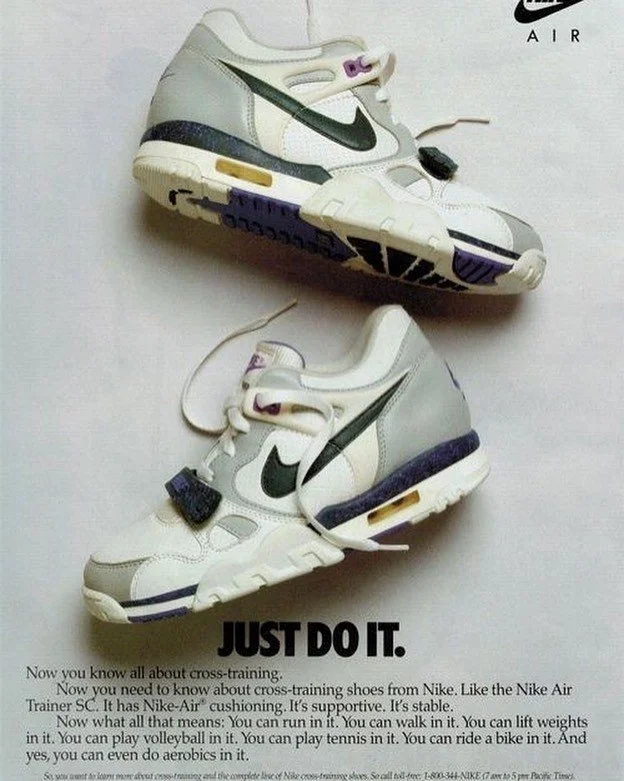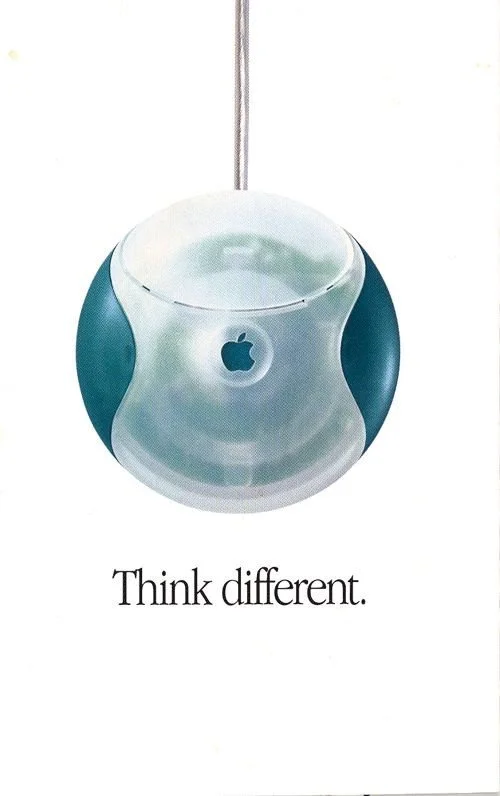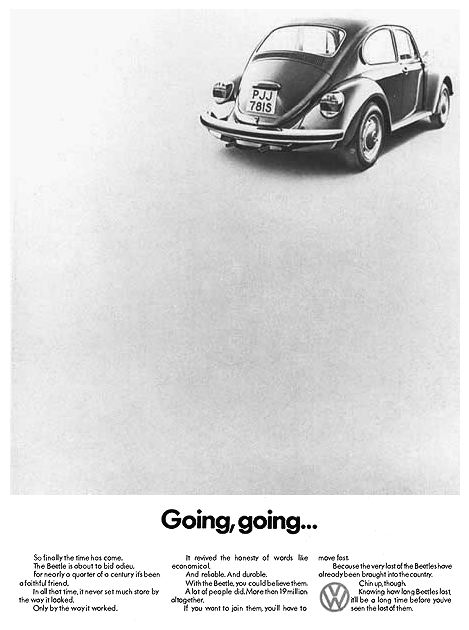Building cult brands
Our guide to creating obsession-worthy brands
A cult brand isn't just liked, it's also loved, defended, desired, and becomes an integral part of its customers' identity. Cult brands become cult because they tap into the essence of what people truly desire; they solve not only a tangible need, but also a psychological or emotional need. Forget fleeting trends, the real magic lies in building a brand that cultivates genuine obsession. Cult brands forge deep emotional connections that transcend monetary transactions, and they do it through great storytelling. Nobody ‘needs’ a ten thousand dollar handbag, and yet Hermès is still in business nearly 200 years after its inception.
What is brand ‘storytelling’?
Like a great bedtime story, brand storytelling is the art of crafting and sharing narratives that connect with audiences on an emotional level. These stories ultimately shape customer perceptions and create brand loyalty. Storytelling is memorable and impactful because it goes beyond simply listing facts and features, instead, it focuses on creating relatable characters, engaging plots, and meaningful themes that resonate with consumers' values and aspirations.
At its core, a brand story feels genuine and honest. It reflects the true values, mission, and personality of the brand, avoiding forced narratives or inauthentic claims. The most impactful stories also tap into human emotions. Whether it's joy, nostalgia, inspiration, or even a touch of sadness, a great brand story makes the audience feel something, creating a deeper connection.
Memorable brand stories put their audiences emotions and needs at the centre. While emotionally driven, a great brand story also subtly communicates the brand's purpose and value proposition. It shows how the brand solves problems, fulfills needs, or makes a positive impact on people's lives. In a crowded marketplace, a great brand story helps a brand stand out from the competition. It highlights what makes the brand special and creates a distinct identity in the minds of consumers. A brand's story should be consistent across all its marketing channels and touchpoints. This builds trust and reinforces the brand's identity in the minds of their customers.
Five cult brands worth mentioning
Building a cult brand isn't about aggressive marketing or manufactured hype, but it does include great story telling. It's about honoring shared values, and creating a community where customers feel seen, understood and inspired. While the landscape evolves, these brands consistently manage to stay relevant:
Nike
Not only do Nike have the best tagline ever, #justdoit, they also excel at telling powerful stories that connect with their customers on an emotional level. Their advertising rarely focuses solely on product features. Instead, they highlight the struggles, triumphs, and perseverance of athletes, both professional and everyday individuals. This approach inspires and motivates, making people feel like part of a larger movement, rather than just consumers.
Apple
Another master storyteller, Apple don’t just sell products; they sell a lifestyle. Apple’s marketing rarely focuses on the devices themselves, instead, their brand portrays how their products enhance creativity, productivity, and personal expression, appealing to consumers' aspirations and self-image.
Volkswagen
Volkswagen’s focus is on relationship marketing. They truly understand how their cars fit into their customer’s lives. Not only have they created some of the cutest car ads ever created, their marketing also has a willingness to poke fun at itself, which helped build trust with consumers.
Starbucks
Hand-written names on Starbucks cups went viral because it turned a simple coffee run into a personal, shareable moment. It made customers feel seen, and gave them something fun to post. Starbucks also takes the lead on innovative, seasonal coffee drinks in their highly recognisable cups. By having time-bound, seasonal (and very Instagrammable) coffees, Starbucks keep giving customers a new reason to keep coming back. Even in today’s thoroughly saturated coffee shop market, Starbucks comes out on top as the most identifiable coffee brand.
Lululemon
Lululemon doesn't just sell activewear, they market a lifestyle centered around health, wellness, and personal growth. They sell the idea that their products are an investment in one's well-being and lifestyle. Lululemon also partner with local fitness instructors and athletes who act as brand ambassadors and embody the ‘Lululemon lifestyle’. These ambassadors host in-store events, wellness seminars and "Sweat With Us" classes to activate local fitness communities.
Building a cult brand in 2025
Building a cult brand is not about doing everything, it's about uncovering your unique "secret sauce", and finding a way to share it that resonates with the world. The key to this is great storytelling, in every aspect of the brand and every item mentioned below, storytelling is the key idea holding it all together.
01. A post-authenticity era
'Authenticity" has been a buzzword for the past few years, especially on social media. Succeeding as a brand in 2025 requires a more nuanced and evolved approach. Authenticity remains a crucial foundation, but brands need to go beyond it to truly resonate with consumers and thrive in the coming years. This could look like radical transparency and accountability. Consumers are increasingly skeptical and appreciate honesty. Brands need to communicate openly and be upfront about sourcing, production processes, and even mistakes. Brands will need to measure and show their impact. This looks like backing up claims of sustainability or ethical practices with verifiable data and holding themselves accountable to their promises. This includes providing supply chain transparency, with visibility into the journey of products from raw materials to the consumer.
02. Business beyond profit
Consumers, especially younger generations, are increasingly demanding brands that stand for something beyond just making money. They want to align with companies that have a clear purpose and contribute positively to society or the planet. Purpose isn't just a marketing slogan; it needs to be deeply ingrained in the company's operations, supply chain, and employee culture. Brands that authentically tackle pressing social or environmental issues relevant to their audience will build stronger connections and loyalty.Values should be deeply integrated into the brand and day-to-day business. Consumers are savvy and can sniff out superficial "purpose-washing."
03. Hyper-personalisation at scale
Starbucks paved the way by simply hand-writing their names on cups. While we all still love a hand-written ‘thank you for shopping with us’ note placed in our online order, today’s customers have moved beyond simple marketing gimmics. They demand a deeper understanding of individual needs, preferences, and behaviors. Brands will need to leverage more AI and data analytics to deliver truly personalised experiences across all touchpoints. This could look like tailoring marketing messages, product recommendations, and even product design to individual preferences and going beyond reactive customer service to anticipate needs and offer proactive solutions.
04. Building genuine community and belonging
Today’s audience have long moved past static one-way broadcasting marketing messages. They are looking for two-way conversations and fostering genuine dialogue. Brands needs to create spaces for connection, and not just between brand and customer, but between the customers themselves to build true community. Facilitating online and offline communities where customers can connect with each other and the brand around shared interests and values will be key.
05. Immersive experiences
Customers are looking for consistent and frictionless experience across all online and offline channels. With so many brands online today, building up trust online has never been easier… so what happens to brick and mortar stores when they are no longer a necessity? They become places to ‘surprise and delight’ customer. This goes beyond functional transactions to create moments of joy and unexpected value for customers. This could look like leveraging emerging technologies, such as exploring AR/VR, metaverse experiences, and other technologies to create engaging and memorable brand interactions. It could also look like building zero-tech, playful in-store experiences that build up your brand value and are places for your customers to be wowed and have fun.
To recap
Brand success is less about simply appearing authentic and more about demonstrating genuine purpose, fostering deep connections and providing seamless, personalised experiences. Brands that can master communicating these elements with great story telling will build lasting loyalty and thrive in an increasingly demanding and conscious marketplace.
Building a cult brand takes time and effort, but the rewards – unwavering loyalty and passionate brand advocates – are well worth it. By focusing on telling a brand story that centres your customer and communicates your brand purpose, you can create a brand that your customers don't just like, they're truly obsessed with.
Keen to learn more about building a cult brand? Drop us a line.
Hello@artemisstudio.co








